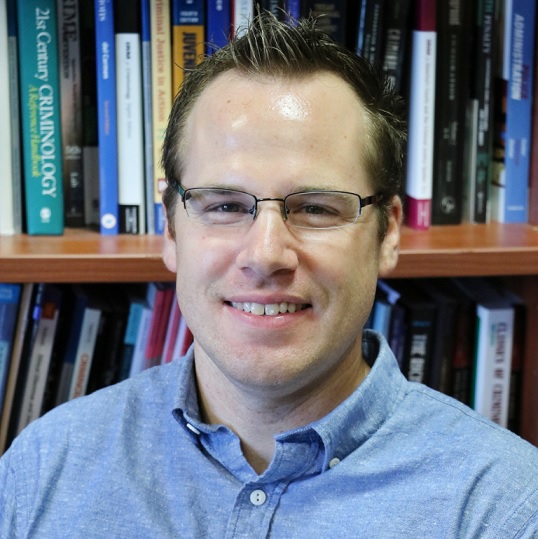New TAMIU Continuing Education Course to Look at ‘The American Experiment’

A new Texas A&M International University (TAMIU) continuing education course will examine ‘The American Experiment,” exploring the political and philosophical ideas at the heart of America’s founding, and how those ideas have been forged into reality through the years.
The course meets once weekly Sept. 26 - Dec. 5 from 6 - 7:30 p.m. TAMIU assistant professor, College of Arts and Sciences, department of Social Sciences, Dr. Jack Byham will lead the course. Course cost is $200.
Dr. Byham said the backdrop of an election year framed his decision to create the course.
“I was approached by Susan Foster of our Continuing Education Office, who asked if f I might like to teach a basic civics course open to the community. This being an election year, she and I both thought that an old-fashioned kind of civics class might be a good fit. But I knew I wanted to deliver something more than a basic introduction to how American government works, so I decided to introduce course members to the same authors American framers would have been reading; authors that would have helped shape their thinking about politics,” he explained.
Byham decided to name the course “The American Experiment,” noting that the nation is still very much an experiment in self-government.
“As measured by longevity, the political framework originally designed by the framers of the Constitution has been quite successful. Our Constitution, compared to those of other countries today, is without doubt one of the longest-lasting. But in the broad scope of history, we are still very much an experiment in self-government—still very much a free people ruling ourselves. Unlike a laboratory, social experiments play themselves out in the real world over time, and with much at stake,” he observed.
Byham said the course goes beyond the traditional scope of American government courses.
“We’ll examine in greater detail the political philosophy that informed the American founding. We’ll study key selections from texts framers were reading and also some of what they wrote themselves—letters, pamphlets, etc.—to get a sense of their concerns and direction of thinking. We’ll also look at American founding documents—the Declaration of Independence and the Constitution—to see how they were incorporated into the actual framework of American government. Finally, we’ll try to assess the career and power of the political ideals inspired by America’s founding. These are the ideals that seem to promise an ordered liberty in which free and equal individuals pursue their happiness as they see fit,” he said.
He noted today’s partisan political climate offers a perfect opportunity to revisit the origins of American government.
“The lessons of the Constitution and the Declaration, apart from the shared experience of American history they helped to shape and inspire, provide a kind of identity for us and remind us that our partisanship takes place on the basis of a more fundamental agreement found in the words of the Declaration: ‘We hold these truths to be self-evident, that all men are created equal, that they are endowed by their Creator with certain unalienable rights, that among these are life, liberty and the pursuit of happiness.’
“Naturally, partisans disagree about what these ideals require of us in practice and how they are reflected in the laws of the land. But without the framers’ context, it would be difficult for those partisans to appeal to the better angels of their opponents’ (or their own) nature, which incline us towards cooperation and peace,” he noted.
Byham said he’s hopeful that the lessons from “The American Experiment” can sustain an ongoing relationship with and understanding of American government.
“I want to provide students with an opportunity to learn about the broader intellectual context of the American Revolution and founding. Understanding this sheds real light on the political issues and problems of our time. And finally, I hope that as a result of taking this course those who want to know more will know where to turn to pursue the questions they’ve discovered in my class,” he concluded.
For additional information, contact TAMIU’s Office of Continuing Education at 956.326.3068, email ce@tamiu.edu, or visit offices in the Student Center, room 118. Information is also available online at http://www.tamiu.edu/ce/index.shtml
University office hours are from 8 a.m. – 5 p.m. Monday-Friday.
University information is also available on its social media channels on Facebook, Instagram, Twitter and YouTube.